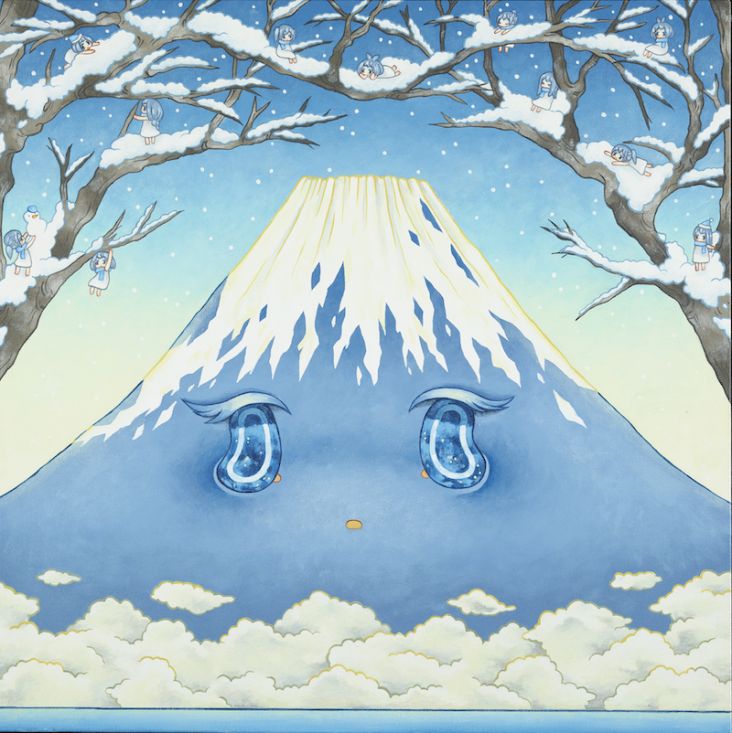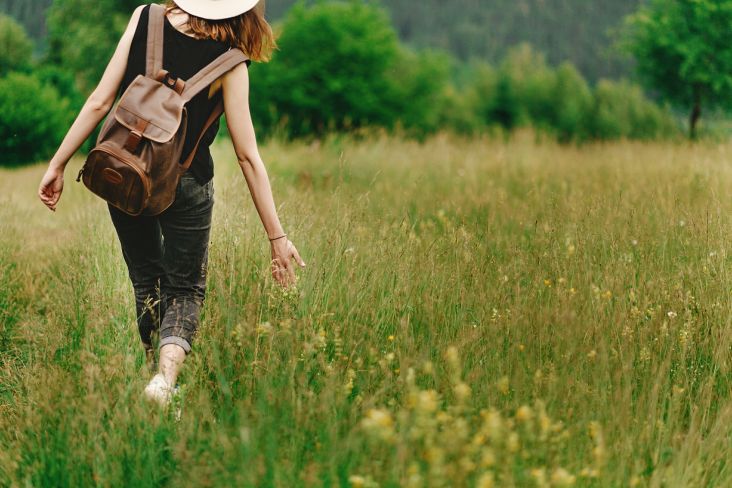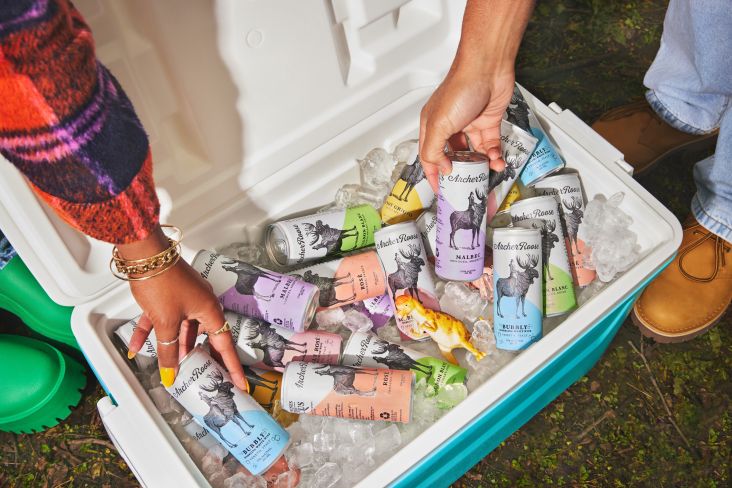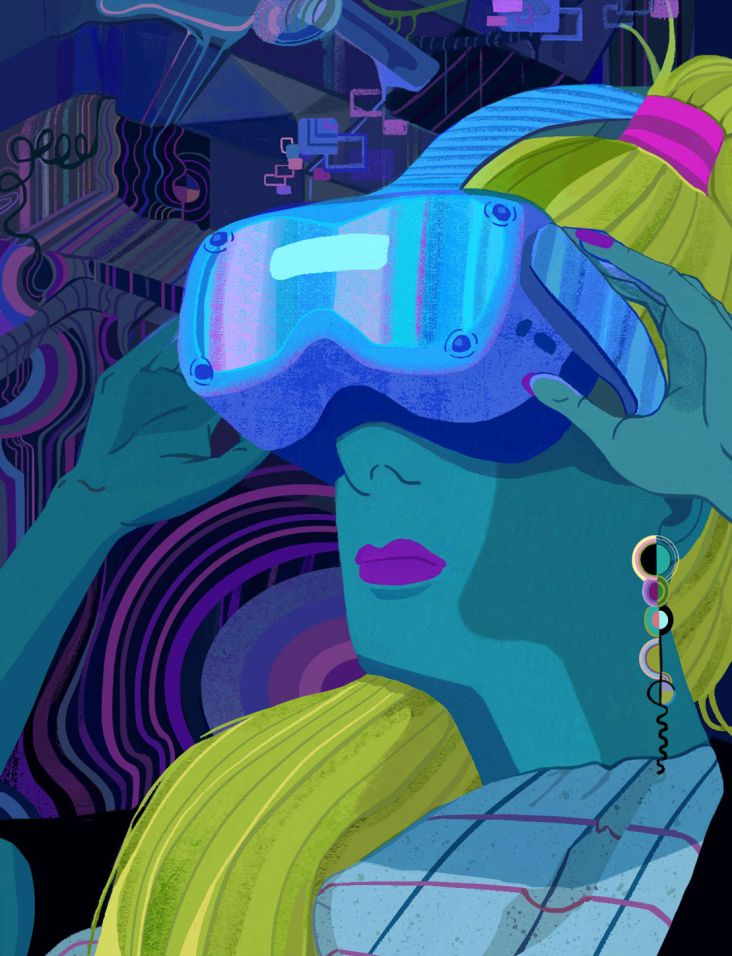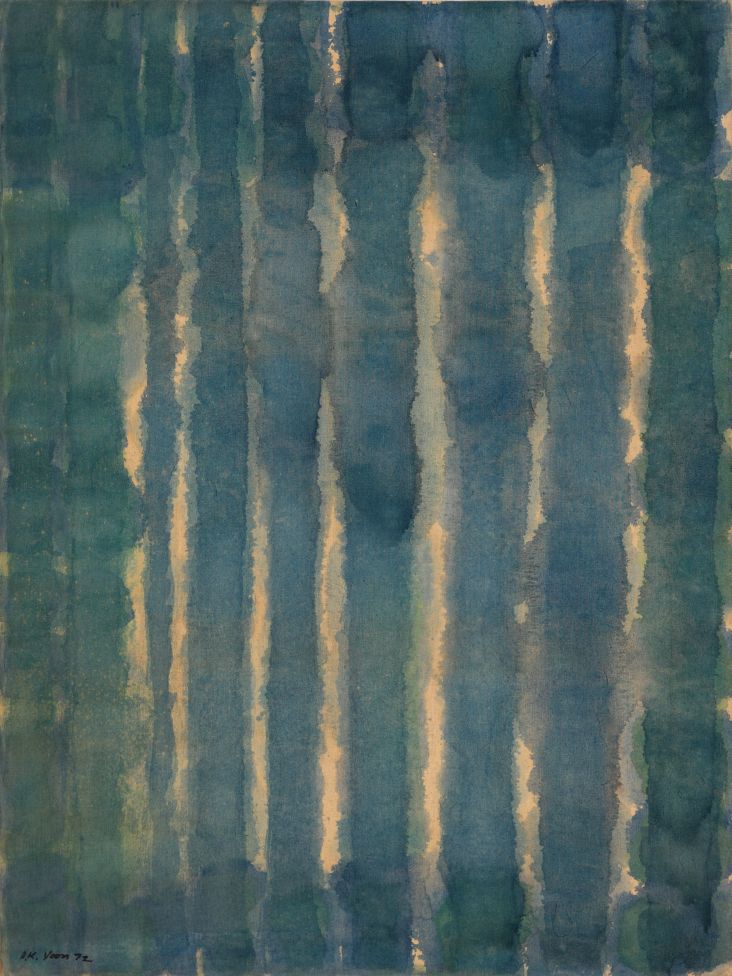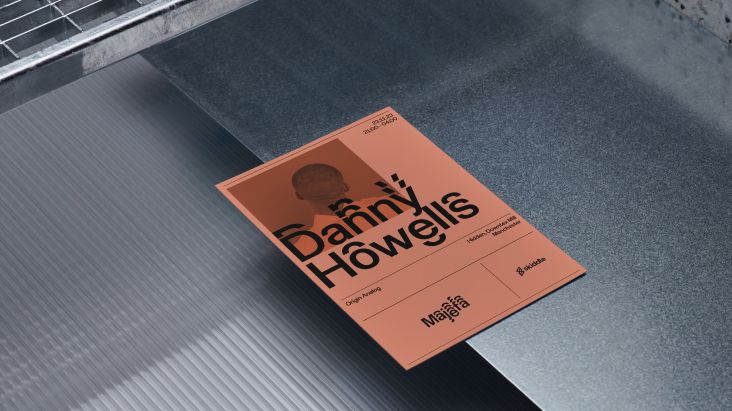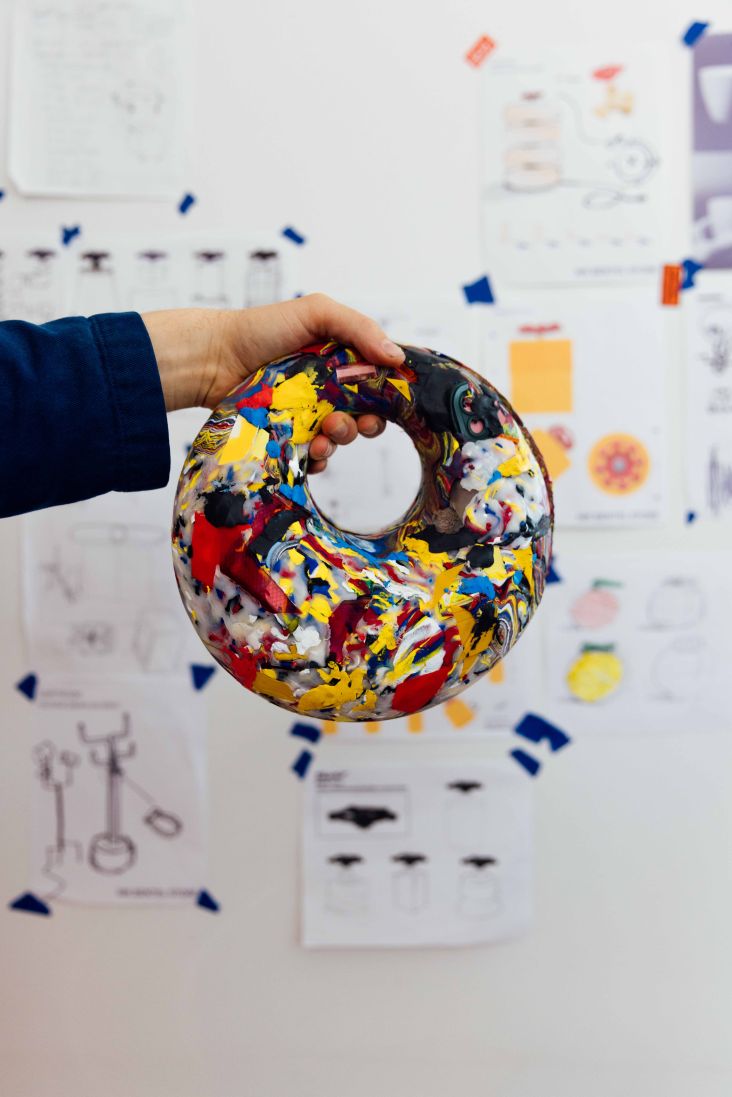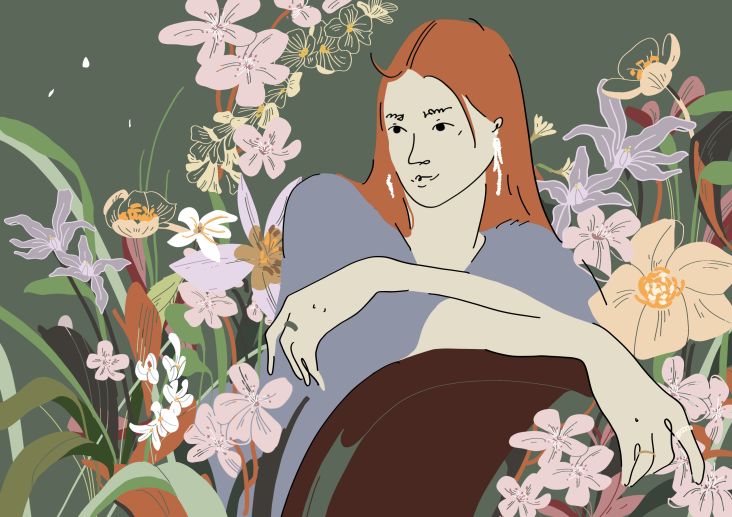'Craft creates connection': Jessica Dance on finding her calling, creative coaching, and sharing opportunities
Artist and creative coach Jessica Dance has forged a career by listening to her values and staying aligned with her beliefs. We caught up with her to learn about her career so far and how switching to coaching has changed her outlook and work.
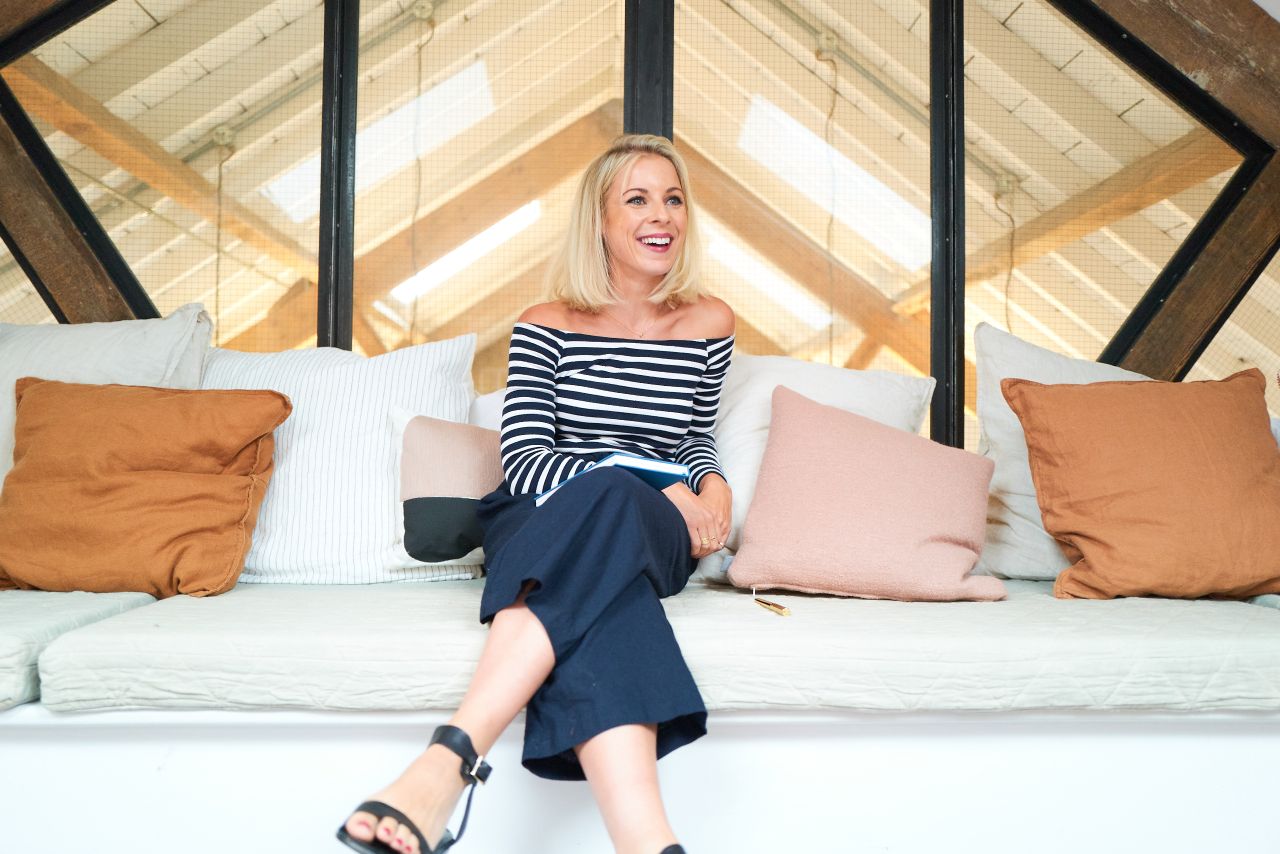
Portrait by Sam Robinson
Jessica Dance has been shaking up the creative world since 2010, when she set up her own business as a window display maker, editorial set designer and prop creator for fashion shoots. "Honestly, I had no idea what I was doing," she tells Creative Boom. "My plan was just to make cool stuff and tell many people about it."
It's an attitude which seems to have served Jessica well, as she's gone on the work for the likes of BBC, Vogue and Tatler. And at the heart of her success is how Jessica remains aligned with herself. By doing so, she claims to have made work which nobody else was making at the time, as she applied her love of fabric to sewing and paper crafting. "It took some time to find my style and to hone my craft, but eventually, I started to get really exciting projects," she adds.
Jessica has recently diversified and added coaching to her sprawling skill set. We caught up with Jessica to learn how this is helping her empower other creative entrepreneurs, the difference it's made to her work, and how you can use it to change your own outlook and avoid burnout.
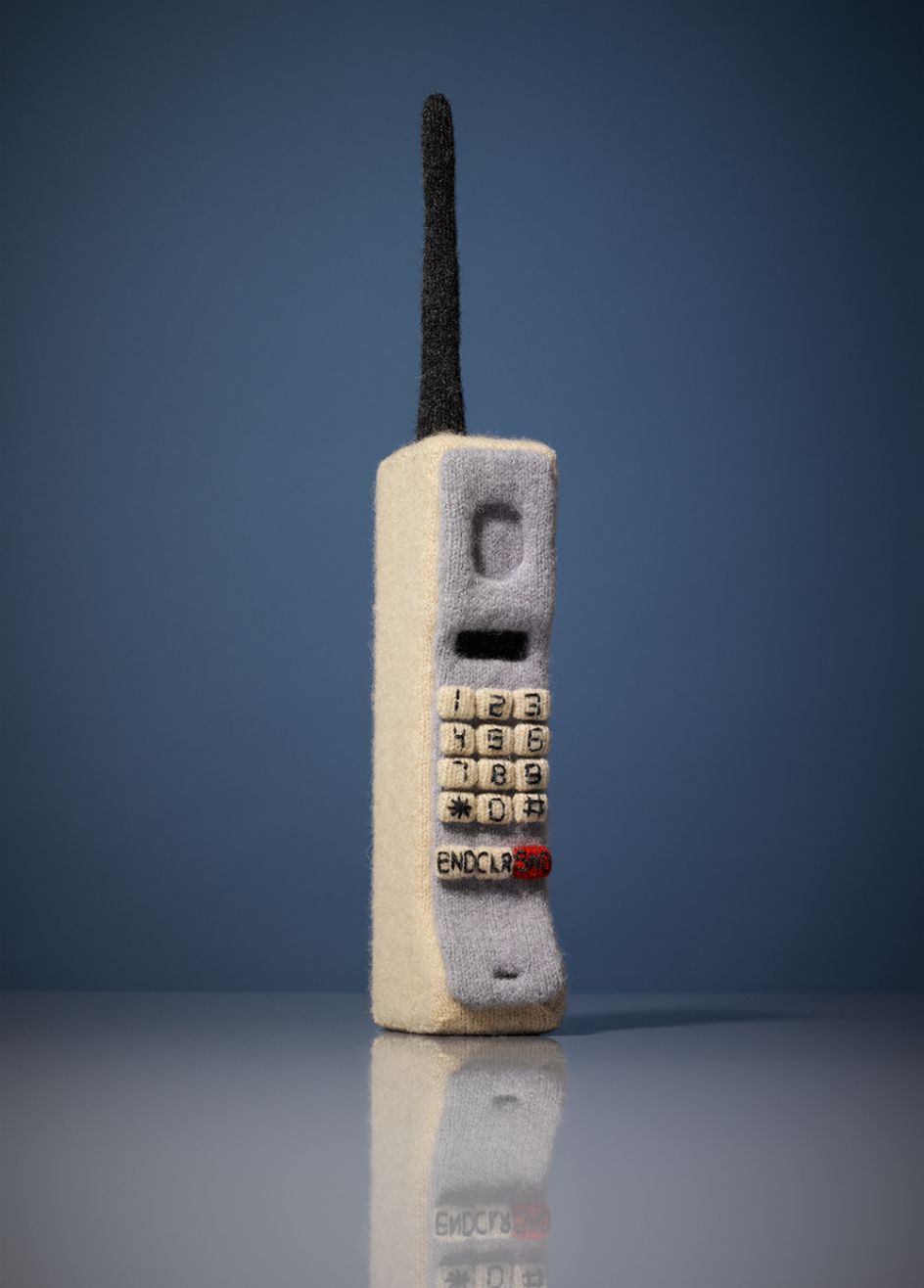
Flufftronics photo by David Sykes
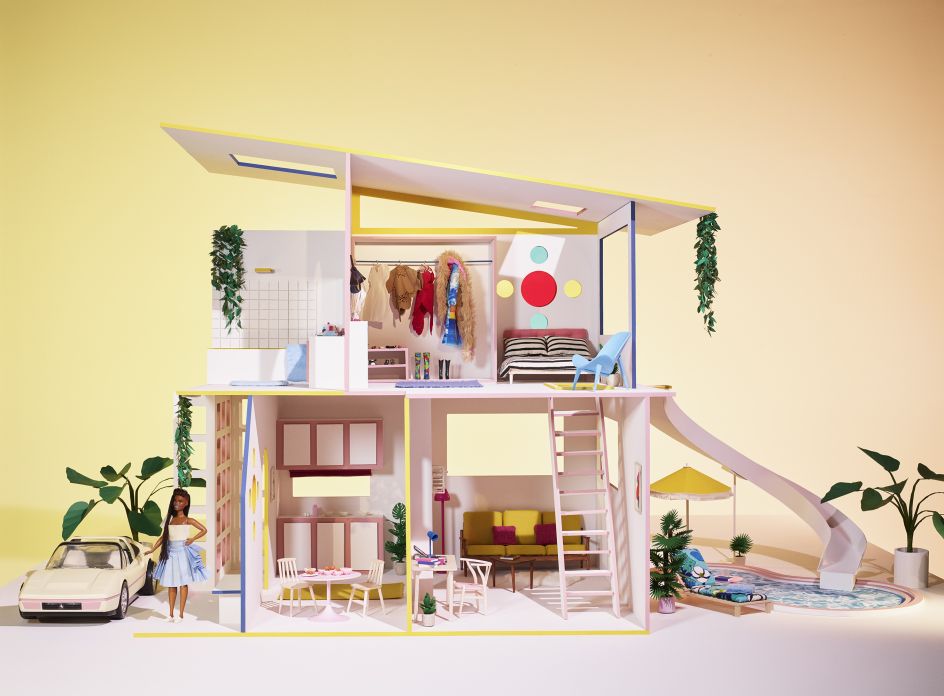
Vogue Barbie shoot by Metz & Racine
Hi Jessica! Tell us about how you switched from being an artist to a coach.
Once I found my flow and commissions became more consistent, something surprising happened. Although I was getting to work on many cool jobs, I just wasn't feeling fulfilled, and I felt a bit fed up.
I struggled with consistency, and I was always stressed. I felt like I was stuck at the same level and not growing. I didn't know the next steps, leaving me feeling lost and frustrated. It was when I went on a self-help journey and discovered the world of coaching.
I started listening to coaching podcasts, and although none of these podcasts was aimed at creatives, the core of what the podcasts were talking about was gold and an absolute game changer for me.
I started to notice how many of my artist friends were giving up on their businesses because they felt like they were at the mercy of the industry. They were frustrated, believing there was a limit to what they could achieve or earn.
The more I spoke to other artists and listened to these podcasts, the more I realised that coaching was my calling in life. I knew that I was meant to help creatives build a business they love rather than being a slave to their art. As I started to implement the mindset I was learning from the podcasts, people started asking me what I was doing because I was showing up differently and getting new results. That's when I decided to train as a coach.
I now work on commissions and coach creative entrepreneurs so they can build the businesses they dream of, and it is so much fun! I live by example, so I am constantly doing the work on myself that I do with my coaching clients.
When did you realise you could turn art and creativity into a career?
Probably in about 1998 (aged 10) when I started buying pots from MFI, decorating them (badly) with acrylic paint and a sponge, and selling them at craft fairs! I sold my slightly questionable painted pots in local shops too. I would say I have had an entrepreneurial spirit from a young age.
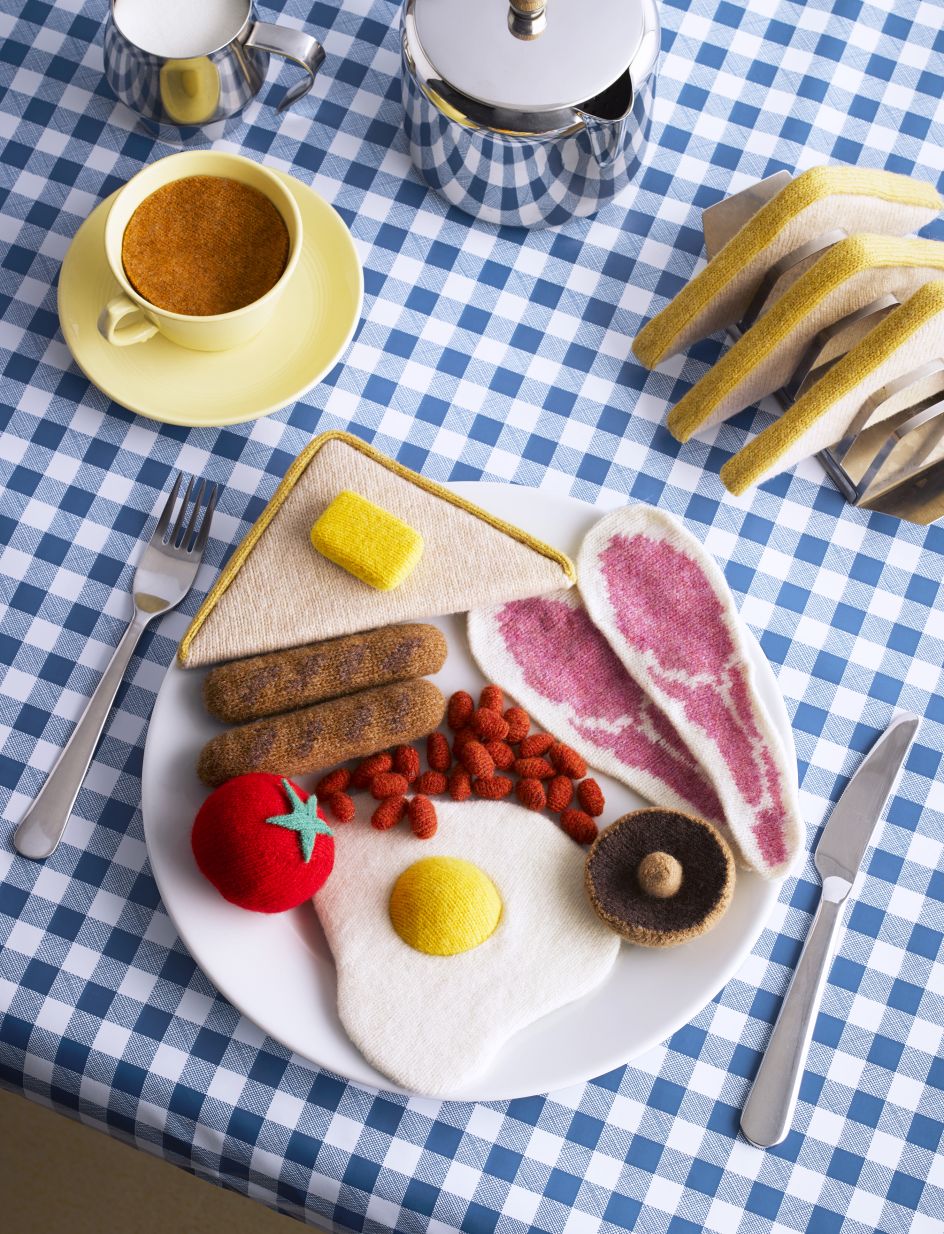
Comfort Food by David Sykes
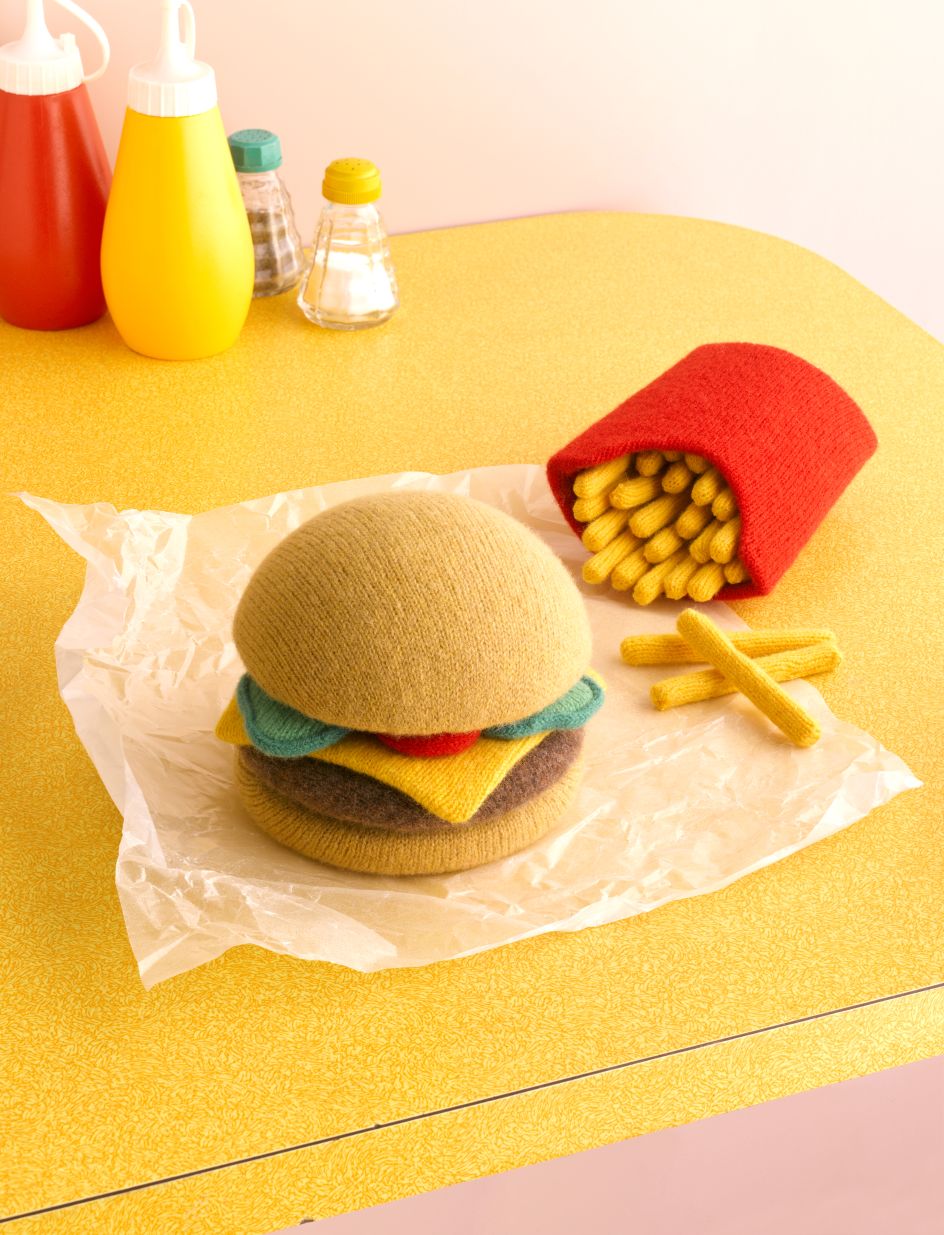
Comfort Food by David Sykes
Your art portfolio is filled with delightful handcrafted models. What attracts you to the handmade approach?
I love that no two handmade art pieces will ever be the same. Craft creates connection. When I look at something made by hand, I imagine the person making it. I picture the process and the time that went into creating it. Craft also encourages me to be curious. When I make something by hand, I am in a flow state, which is an incredibly peaceful place to be. Full disclosure: when something isn't working out, though, I do still get pissed off!
You've worked with many impressive clients, including the BBC, Google and Vogue. Can you tell us more about how these came about?
I think most of my commissions have come about because of two things. 1: I have shown up constantly; and 2: I have always been very proactive when reaching out to brands I want to work with.
When I started in the industry, I wanted to show prospective clients what I could do, so I built a portfolio. I contacted photographers and asked if they wanted to collaborate, which was a win-win as it meant my work got beautifully shot, I could build my portfolio, and the photographer had something nice to shoot that they could add to their portfolio.
I have always been happy to reach out to brands I want to work with. It's so important that we share our work and give people the opportunity to work with us rather than waiting to be asked or discovered.
Reaching out to people can feel uncomfortable at first, but I am willing to allow the discomfort of reaching out and risking rejection if it means there is a chance of getting the desired result. I would rather fail by trying rather than fail by staying stagnant. If I don't get what I want, this is information I can work with. I can use it to consciously choose whether to tweak or change my approach, or I can decide to try something else.


You say your design business took off when you cleaned up your mind. Did you have an epiphany which led to this change?
Thoughts are so powerful. As soon as I understood that I had to choose my thoughts, things shifted for me. I started to feel differently, which caused me to act differently, producing new results.
I learned that Mindset + Action is the key. Either of those components in isolation will help, but it won't create sustainable success. The two together are like rocket fuel.
Why do you think the hustle mindset is unhelpful for creatives?
I interpret hustling as rushing, pushing and forcing, which is unsustainable. It will leave you exhausted, burnt out and wanting to quit.
I like to flip hustle culture on its head, and instead of hustling and chasing, I teach my clients how to attract what they want into their lives. Attracting something into your life is not just a passive process. It requires intention and commitment. It means building your belief and going out and taking action that aligns with that belief. This is how we move into alignment and create the lives that we want.
Tell us more about the coaching you provide to creative entrepreneurs.
I help creatives get unstuck and reconnect with themselves. One of the key things I teach my clients is the power of their thoughts; understanding our minds unlocks a whole new world of possibilities.
I help my clients break free of the 'shoulds' so they can let go of the conditioned and inherited beliefs, reconnect to their intuition, and design the life and business they truly want.
When we start following our internal guidance, we rediscover the fun and excitement, and that is when we start wanting to show up in our creative businesses.
Once my clients decide what they want, we get practical, craft a clear plan to get them to their goal and test the results. We also coach on all drama – which brains always like to throw up when we are growing. It's amazing to watch their transformations.
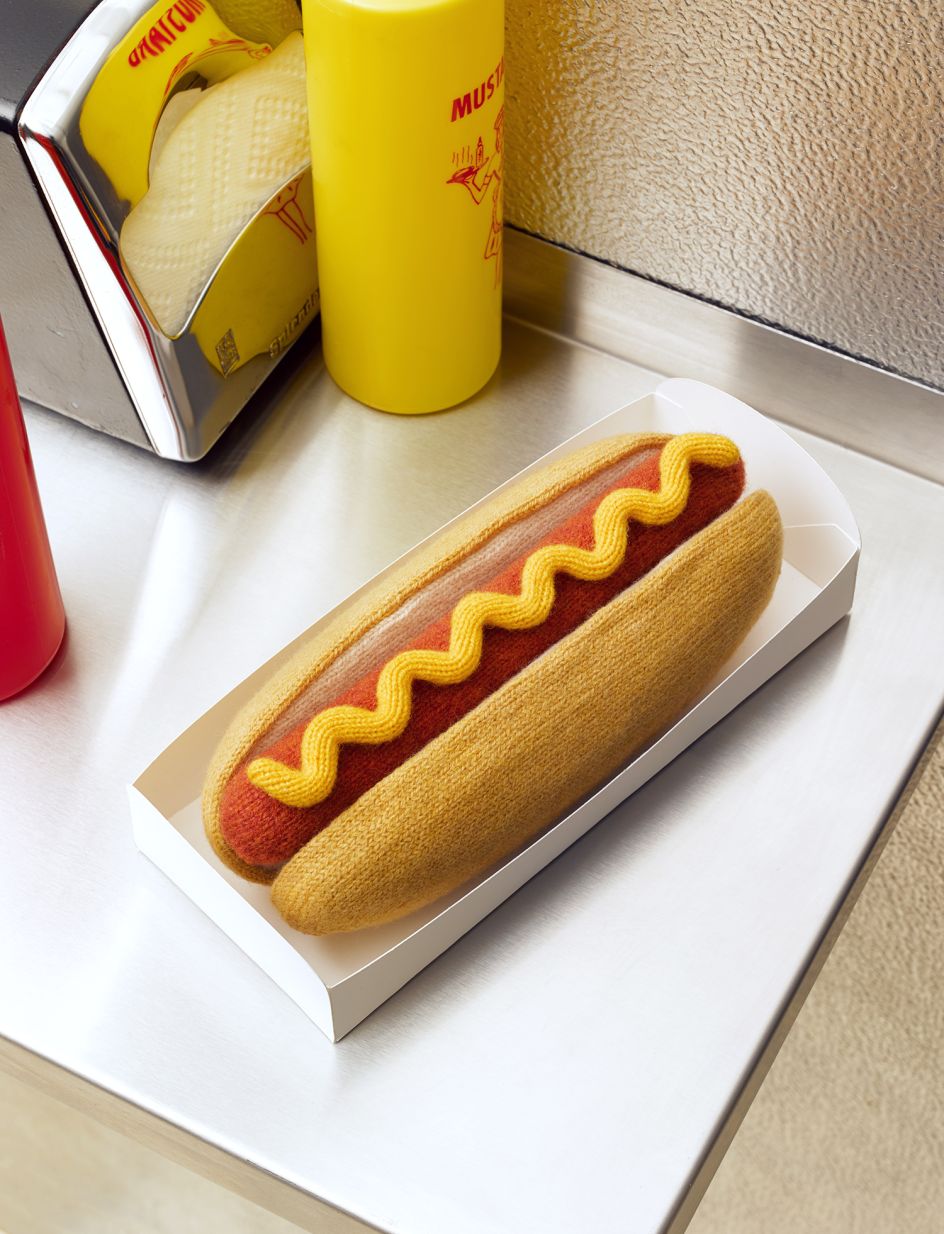
Comfort Food by David Sykes
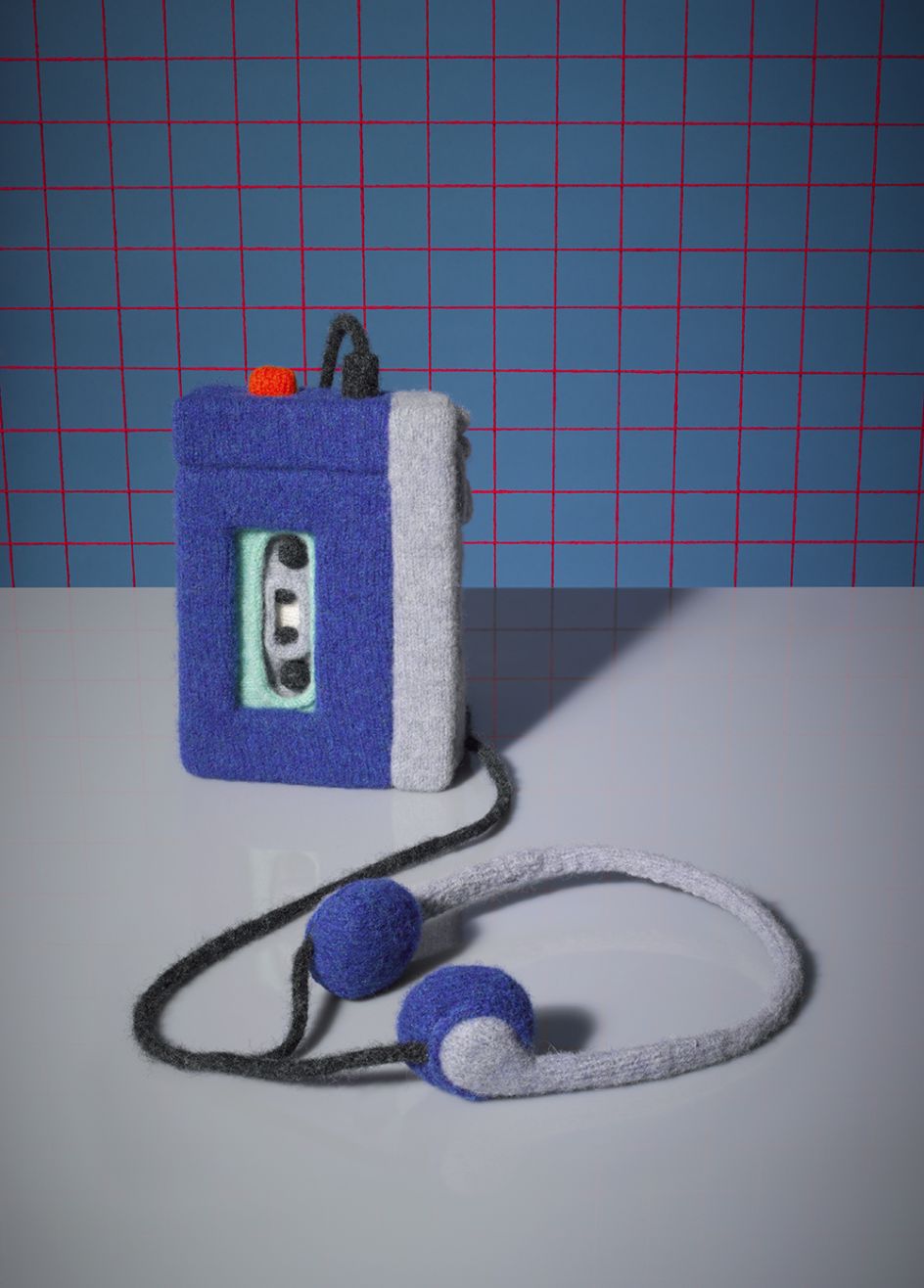
Flufftronics photo by David Sykes
How has coaching made you happier and improve your life?
I recognise when I'm telling myself a crappy story. I understand the power of my mind and how my thinking influences how I feel.
I also think part of being a happier human is accepting that life is 50/50 and that we are not meant to always feel happy.
When we accept that life is a balance of positive and negative, we stop resisting negative emotions and allow ourselves to feel crappy with no judgement. It means we move through the negative emotions faster because when we resist them, we create more tension, and the bad feeling lasts even longer! When we accept negativity, we make more space for positive emotions.
Why do you think people in the creative industry are so prone to overworking and burnout?
I think a lot of us inherit the belief that if you work in the creative field, it has to be a struggle, and it has to be hard. I certainly used to believe this. But this simply is not true.
We make it more difficult for ourselves when we believe it has to be difficult. This is because our brains work a bit like a search engine; whatever thought you've had, your brain will return all the evidence it can to prove that thought true.
When you approach projects with an open mind and believe they can be fun, and there can be joy and ease, your brain will show you evidence that aligns with that thought.
Having said that, I'm a realist. Things come up, clients change the brief, and there will sometimes be late nights and hard work. It happens. But this does need to be how you operate every day.
I also think there can be a fair amount of 'scarcity thinking' in the creative industry. So rather than saying no when the budget is too low or timings are too tight, we can often say yes because we are scared to lose the job or worried someone else will get the job. Then we feel resentful the whole time we are working on the project, which will exhaust us. If we all start asking for fair rates and timings, the industry will begin to change.
Burnout does not come from the work itself; it comes from the energy and attitude we bring.
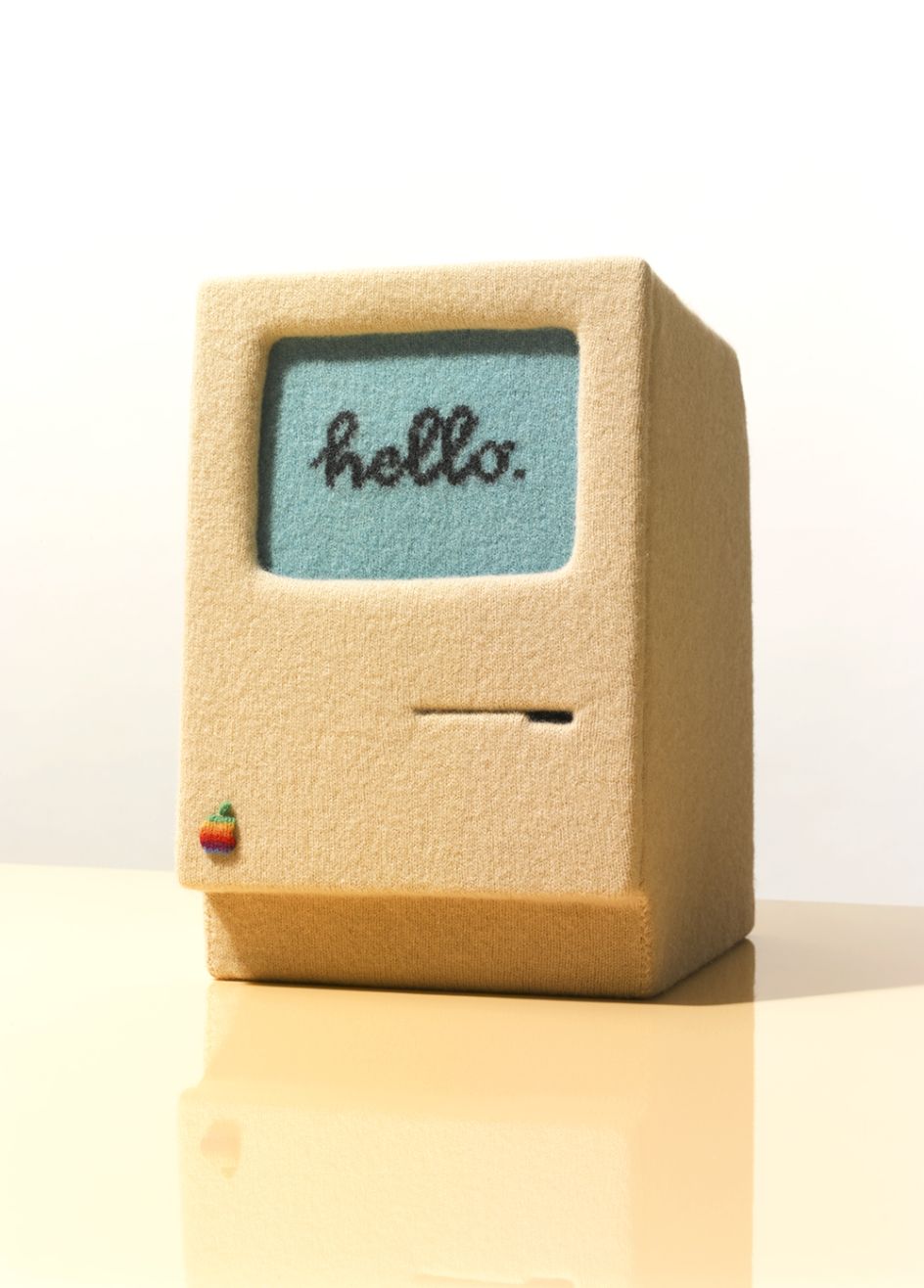
Flufftronics photo by David Sykes
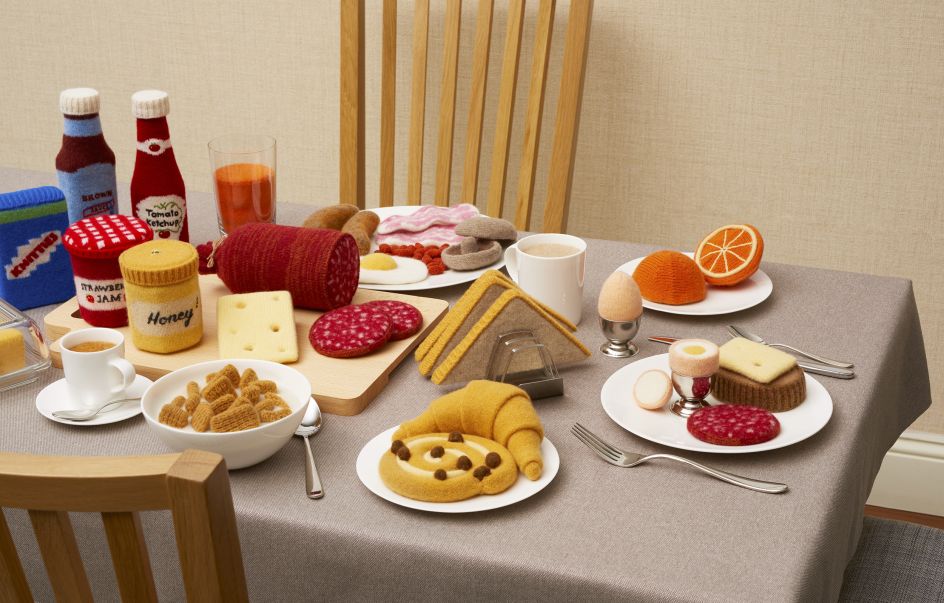
Comfort Food by David Sykes
What has changed in the creative industry since you started coaching?
Covid changed a lot; people had to really sit down and look themselves in the eye. Many people realise life is too short to do shit you don't care about.
Both creativity and coaching are lifelong learning processes. What have you recently learnt that's helped you?
I am always learning, but I would say to show up and do the work, let go and trust in the process. I used to tie myself up in knots, trying to control every outcome, which was exhausting. These days I show up and work intentionally with my designs and plan. And even though things can be a little bumpy, I trust that the universe always has a plan for me. Even when I feel things aren't working out, I trust there's a lesson somewhere.
What advice would you give to budding creatives?
Don't give up. If you love it and it excites you, keep on going! Just because it takes effort doesn't mean you are on the wrong track. It takes multiple attempts and iterations to build a successful reactive business. We never see people's failed attempts; we just see the shiny result. People who succeed in the creative industry are willing to learn from mistakes, evaluate and go again. Things not working out means nothing to you personally. If you are meant to do this and willing to allow the discomfort and twists and turns, you will be rewarded.
Let your gut guide you. Sometimes what you want to do doesn't make sense on paper, but if you feel called to do it, listen up and follow your curiosity.




 by Tüpokompanii](https://www.creativeboom.com/upload/articles/58/58684538770fb5b428dc1882f7a732f153500153_732.jpg)


 using <a href="https://www.ohnotype.co/fonts/obviously" target="_blank">Obviously</a> by Oh No Type Co., Art Director, Brand & Creative—Spotify](https://www.creativeboom.com/upload/articles/6e/6ed31eddc26fa563f213fc76d6993dab9231ffe4_732.jpg)








